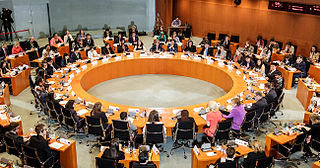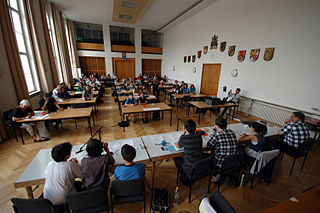An online community, also called an internet community or web community, whose members interact with each other primarily via the Internet. For many, online communities may feel like home, consisting of a "family of invisible friends", additionally these 'friends' can be connected through gaming communities and gaming companies. Those who wish to be a part of an online community usually have to become a member via a specific site and thereby gain access to specific content or links, but today's society and economy where media life has been fully integrated into the average day; the online community has stemmed to a full-blow culture. An online community can act as an information system where members can post, comment on discussions, give advice or collaborate, and includes medical advice or specific health care research as well. Commonly, people communicate through social networking sites, chat rooms, forums, e-mail lists, and discussion boards, and have advanced into daily social media platforms as well. This includes Facebook, Twitter, Instagram, etc.. People may also join online communities through video games, blogs, and virtual worlds, and could potentially meet new significant others in dating sites or dating virtual worlds. The rise in popularity of Web 2.0 websites has allowed for easier real-time communication and connection to others and facilitated the introduction of new ways for information to be exchanged. Yet, these interactions may also lead to a downfall of social interactions or deposit more negative and derogatory forms of speaking to others, in connection, surfaced forms of racism, bullying, sexist comments, etc. may also be investigated and linked to online communities.

An Internet forum, or message board, is an online discussion site where people can hold conversations in the form of posted messages. They differ from chat rooms in that messages are often longer than one line of text, and are at least temporarily archived. Also, depending on the access level of a user or the forum set-up, a posted message might need to be approved by a moderator before it becomes publicly visible.

Rania Al-Abdullah is the queen consort of Jordan. Her parents are from the city of Tulkarm in the West Bank, and she was born in Kuwait. She received her bachelor’s degree in business at the American University in Cairo. After the 1991 Gulf war, she and her family fled to Amman, Jordan where she met the then prince Abdullah. Before meeting him, she worked at Citibank and then took a job in the marketing department at Apple. Since marrying the now King of Jordan in 1993, she has become known for her advocacy work related to education, health, community empowerment, youth, cross-cultural dialogue and micro-finance.

The Space Generation Advisory Council (SGAC), in support of the United Nations Programme on Space Applications, is a non-governmental organisation and professional network which "aims to bring the views of students and young space professionals to the United Nations (UN), space industry and other organisations”. SGAC has a clear purpose to connect, inspire, engage and advocate; it works to raise awareness among the next generation of space professionals on a global scale. The SGAC network currently represents over 15,000 members across 150 countries - the world's largest network of students, young professionals and alumni in the space industry. SGAC operates in the six official languages of the United Nations, though the official working language is English.
Youth participation is the active engagement of young people throughout their own communities. It is often used as a shorthand for youth participation in any many forms, including decision-making, sports, schools and any activity where young people are not historically engaged.

Student voice is "any expression of any learner regarding anything related to education" and describes "the distinct perspectives and actions of young people throughout schools focused on education. Tech educator Dennis Harper writes, "Student voice is giving students the ability to influence learning to include policies, programs, contexts and principles."

The Internet Governance Forum (IGF) is a multistakeholder governance group for policy dialogue on issues of Internet governance. It brings together all stakeholders in the Internet governance debate, whether they represent governments, the private sector or civil society, including the technical and academic community, on an equal basis and through an open and inclusive process. The establishment of the IGF was formally announced by the United Nations Secretary-General in July 2006. It was first convened in October–November 2006 and has held an annual meeting since then.

The Student Room Group is a UK based privately held student community company. It owns three major student facing websites: TheStudentRoom.co.uk, MarkedByTeachers.com and GetRevising.co.uk.

Also known as J7 Youth Summit, J7 Summit, J7, Junior 7, J8, J8 Summit The J7 Global Citizenship Summit provides young people from around the world with opportunities to learn more about topical global issues, to debate and discuss these issues, and to take their solutions to world leaders at the G7 summit. J7 is a partnership between UNICEF and the country with the presidency of the G7.

The International Lesbian, Gay, Bisexual, Transgender, Queer & Intersex Youth and Student Organisation (IGLYO) is an international LGBTQI organisation that was created in 1984 as a reaction to the need for better cooperation among regional, local and national LGBTQI youth and student organisations.

Kimmie Weeks is a Liberian human rights activist.

The youth rights movement seeks to grant the rights to young people that are traditionally reserved for adults, due to having reached a specific age or sufficient maturity. This is closely akin to the notion of evolving capacities within the children's rights movement, but the youth rights movement differs from the children's rights movement in that the latter places emphasis on the welfare and protection of children through the actions and decisions of adults, while the youth rights movement seeks to grant youth the liberty to make their own decisions autonomously in the ways adults are permitted to, or to lower the legal minimum ages at which such rights are acquired, such as the age of majority and the voting age.

UNICEF UK, also known as the United Kingdom Committee for UNICEF, is one of 36 UNICEF National Committees based in industrialised countries. The National Committees raise funds for the organisation's worldwide emergency and development work. In 2007, UNICEF UK raised £41.3 million for UNICEF’s work with children worldwide. UNICEF UK also advocates for lasting change for children. For example, it works to change government policies and practices that are detrimental to children’s rights in the UK and internationally.

The Northern Ireland Youth Forum (NIYF) is a youth organisation in the United Kingdom, consisting of volunteer members aged between 11 and 25. Winners of the very first MTV voices award in 2011.

Youth councils are a form of youth voice engaged in community decision-making. Youth councils exist on local, state, provincial, regional, national, and international levels among governments, non governmental organisations (NGOs), schools, and other entities.
Victor Santiago Pineda is a Venezuela-born social development scholar and disability rights advocate. He is also an international speaker and consultant on accessibility related issues. Early in his career, he served as the youngest government delegate to participate in the drafting of the United Nations Convention on the Rights of Persons with Disabilities and thereafter launched the World Enabled Global Initiative, a disability affiliate program that combines the reach of the world's most active disabled persons’ organizations (DPOs) and intergovernmental agencies. He also launched the Pineda Foundation, a voluntary non-profit that promotes the rights and dignities of young people with disabilities. Both were established in 2003.

The Secretary-General's Envoy on Youth serves as a global advocate for addressing the needs and rights of young people, as well as for bringing the United Nations closer to them. The Envoy's Office is part of the United Nations Secretariat and supports multi-stakeholder partnerships related to the United Nations system-wide action plan on youth and to youth volunteer initiatives. The office also promotes the empowerment and foster the leadership of youth at the national, regional, and global levels, including through exploring and encourages mechanisms for young people’s participation in the work of the United Nations and in political and economic processes with a special focus on the most marginalized and vulnerable youth.

Katherine Roberts Maher is the chief executive officer and executive director of the Wikimedia Foundation, a position she has held since June 2016. Previously she was chief communications officer. She has a background in the field of information and communications technology and worked in the non-profit and international sectors, focusing on the use of technology to empower human rights and international development.
Rebeca Z. Gyumi is a Founder & Executive Director at Msichana Initiative, a Tanzanian NGO which aims to empower a girl child through education, and address key challenges which limit girl’s right to education. She has worked for over 8 years with Femina, a youth focused organisation as a TV personality and youth advocate..